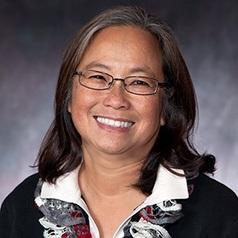
Maria S. Floro
Professor Emerita of Economics, American University
Professor Emerita of Economics
American University
Washington DC 20016
Less ![]()

Maria Teresa Beamond
Lecturer in Global Human Resources Management, RMIT University
Maria is an Assistant Professor at RMIT University. Before joining RMIT Maria undertook two years Postdoctoral Scholar and Research Fellow at Penn State University, USA. Maria did her PhD in Management, at the Business School, The University of Queensland. Within the international business and human resource management fields, Maria’s research interest covers corporate social responsibility, international HRM, global talent management, emerging economies, artificial intelligence, organizational culture. Maria has taught in USA, Australia, China, and Singapore, and presented her research work in several countries to academic and industry conferences in Europe, USA, Latin America, and Australia
Less ![]()
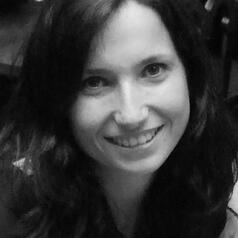
María Villanueva Fernández
Profesora del Grado en Diseño y del Grado en Estudios de Arquitectura de la ETSAUN y del Programa Internacional en Comunicación de Moda de FCOM, Universidad de Navarra
Doctora Arquitecta con una tesis sobre diseño moderno español. Es Profesora Titular de la Universidad de Navarra donde imparte docencia en el Grado en Diseño y en el Grado en Estudios de Arquitectura de la ETSAUN, y del Programa Internacional en Comunicación de Moda de FCOM. Su investigación está centrada en la historia del diseño español del siglo XX y los límites de la disciplina con el arte y la arquitectura. Sus resultados han sido publicados como artículos en revistas indexadas y capítulos de libro. Ha realizado estancias de investigación en The Getty Research Institute (Los Ángeles), GSAPP Columbia University (New York) y ENSAPBX (Bordeaux).
Less ![]()
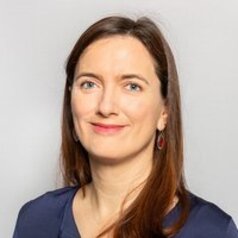
Maria Yetano Roche
PhD Candidate, University of Wuppertal
I am a researcher and international consultant with three distinct fields of expertise: sustainable energy access in the global south, just transition in coal regions, and industry decarbonisation. I have eighteen years’ experience in international energy and sustainability research and policy, of which eight in global south contexts, with active involvement in national climate policy and regional just transition processes.
Key areas of expertise:
• Quantitative modelling of GHG emissions scenarios and their socio-economic impacts at national level and for specific sectors: energy, industry, land use
• Delivery models for sustainable energy access (off grid electricity and clean cooking) and synergies with climate goals
• Analysis of policy instruments for just transition in carbon-intensive regions and sectors
• Assessment of technology costs and qualitative analysis of markets
• Technical assistance and stakeholder engagement for the development of energy and climate policies
• Decarbonisation technologies and policies in industry and hard-to-abate sectors
Less ![]()
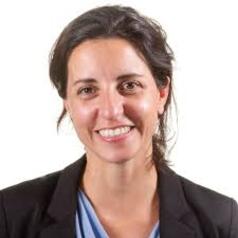
Mariachiara Di Cesare
Professor in Population Studies and Global Health, University of Essex
Professor Di Cesare has interdisciplinary work experience in both academia and international organisations. Her research in population health uses and integrates concepts, data and methods from demography, epidemiology, statistics, and social science.
Her work has focused on the epidemiology and public health of obesity and undernutrition, the role of early nutrition on child development, whether, and how much, changes in metabolic risk factors have contributed to the decline in cardiovascular mortality, and the extent of within and between countries inequalities in non‐communicable diseases mortality and associated risk factors.
Her work is influencing policy worldwide and she has contributed to the scientific response to COVID-19 by looking at novel approaches to identifying outbreaks using wastewater based epidemiology, excess mortality, and the overall response to the COVID-19 pandemic.
Chiara's research on global trends in obesity is used by the World Health Organisation (Global Health Observatory) as official estimates and is used to inform policies. In 2018 she led the successful application to the WHO Essential Medicine List for the inclusion of non-vitamin K anticoagulants for the treatment of atrial fibrillation to prevent stroke. She is currently a member of the core team of the Independent Expert Group of the Global Nutrition Report and a member of the World Heart Federation Observatory Advisory Group.
Chiara is an honorary research fellow at Imperial College London and an honorary professor at Middlesex University.
Less ![]()

Mariaelena Gonzalez
Assistant Professor of Public Health, University of California, Merced
Dr. Gonzalez is an Assistant Professor in Public Health at the University of California Merced in the fields of Social Epidemiology, Health Disparities, and Health Policy. Her current research focuses on health disparities, including oral health disparities, and the ways in which social and environmental factors affect health risk behaviors. Dr. Gonzalez’s research areas include tobacco control, and understanding the unexpected risks and benefits of tobacco control policies, as well as the linkages between tobacco use and other risk behaviors. Dr. Gonzalez also studies the ways in which health behaviors differ between first, second, and third generation Latinos. Dr. Gonzalez’s previous research has examined scientific and medical occupational pipelines, the passage of smokefree laws in the United States, as well as the passage of smokefree laws in the Netherlands.
Less ![]()
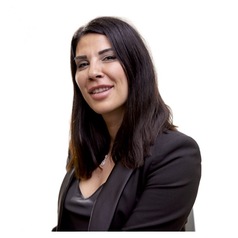
Mariam Farida
Lecturer in Terrorism and Counter-Terrorism Studies, Macquarie University
Dr Farida is a lecturer, researcher, and consultant. She is currently a Lecturer in Terrorism Studies at the Department of Security Studies and Criminology at Macquarie university. She has also served as researcher and consultant for Counter Violent Extremism (CVE) programs in CSNSW. Dr. Farida's research sits at the intersection of Middle East politics, non-state groups, terrorism, and political violence. Her work primarily focuses on non-state actors' recruitment, mobilisation, and ideology. She has published on religion and politics, non-state actors identity building, and popular culture in relation to a range of contexts, and has a particular interest in understanding the function and impact of identity construction in popular, political, and religious discourses. Dr Farida has conducted field work studies on the recruitment and mobilisation of Hizbullah in Lebanon. Her research has been published in journals such as International Review for Social Research, Journal for Policing, Intelligence, and Counter Terrorism, and Handbook of Terrorist and Insurgent Groups: A Global Survey of Threats, Tactics, and Characteristics. She is also the author of Religion and Hezbollah: Political Ideology and Legitimacy (Routledge 2020).
Less ![]()
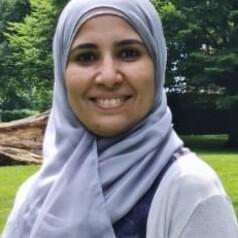
Mariam Gamal El-Din
Visiting Postdoctoral Scientist, Food Microbiome Interactions, Quadram Institute
I joined the Quadram institute as a visiting post-doc. scientist, at the Kroon Group in January,2023. I work on studying the effects of different polyphenols and plant extracts on the gut microbial metabolism and the associated health benefits accompanied with their consumption. I also work on extracting, fractionating, metabolic profiling of polyphenol-rich extracts and isolating the bioactive constituents of promising extracts for further in-depth studies of their individual influence on gut microbial metabolism.
I am originally from Egypt where I got my bachelor degree in Pharmaceutical Sciences (excellent degree with honors) from the Faculty of Pharmacy, Ain Shams University, Cairo, Egypt (July, 2008). Then, I started my academic and research career working as Teaching Assistant and MSc. student at the department of pharmacognosy and phytochemistry (April 2009 to July 2013) then as Assistant Lecturer and PhD student at the same department (July 2013 to January 2020). Since February 2020, I am an Assistant Professor of Pharmacognosy and Phytochemistry and Postdoctoral Researcher at the Department of Pharmacognosy and Phytochemistry, Faculty of Pharmacy, Ain Shams University, Cairo, Egypt.
My research interest is mainly focused on food microbiome interactions, medicinal chemistry and plant metabolomics. I am highly experienced in the field of extraction, isolation and purification of naturally occurring secondary metabolites from natural origin especially terrestrial plants manipulating different chromatographic techniques as well as structure elucidation of isolated bioactive molecules utilizing the various techniques of spectroscopy (UV, IR, NMR) and mass spectrometry. During my scientific visit at Quadram Institute, I gain a lot of experience in the field of quantitative metabolomics and in vitro colon model experiments.
Less ![]()
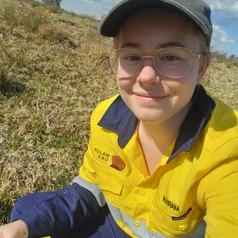
Marian Bailey
PhD Candidate, Geoarchaeology, Southern Cross University
I am in the final month of my PhD candidature with the Geoarchaeology and Archaeometry Research Group, based at Southern Cross University. Currently I am employing trace element and stable isotope analysis to reconstruct the early life behaviour of the extinct hominid Gigantopithecus blacki. Prior to beginning my PhD, I completed a masters degree in heritage management and geoarchaeology focusing on the mobility and diet of Neanderthal and Homo Erectus prey species at sites in Israel and France.
I have worked in consulting archaeology and have undertaken fieldwork extensively, both nationally and internationally, and have presented my research at conferences run by bodies such as EAA, UISPP, WAC, AEIC, IPPA, and AAA. I am currently the vice chair of the World Archaeology Congress (student committee) and representative for Australia and Oceania.
Less ![]()
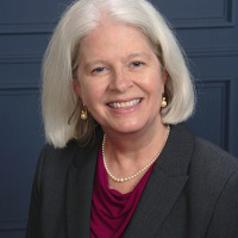
Marian Reven
Professor of Clinical Education, West Virginia University
Marian “Marnie” Reven is an energetic teacher and scholar engaged in bridging the gap between traditional and integrative medicine and nursing practice. As a nurse for over 31 years, Marnie brings an understanding of healthcare that makes a difference during vital conversations with leadership, administrators, policy makers and more.
In addition to nursing, aromatherapy is a passion as well as a serious endeavor. Marnie has invested over 500 hours of education in aromatherapy and is the only Registered Aromatherapist in the state of WV.
Marnie serves on several boards and many committees including WV Wellness Inc., Alliance of International Aromatherapists, and Sigma Theta Tau, Alpha Rho Chapter.
Her 2019 aromatherapy patch research study at the outpatient oncology center at Ruby Memorial has been presented in poster and in presentation form and was published in the spring of 2020 in the International Journal of Professional Holistic Aromatherapists.
Finally, Marnie is a proud member of the American Holistic Nurses Association, and the WVNA and ANA. At WVU she is currently pursing her Ph.D. in Nursing with a focus on research related to integrative and complementary therapies.
Less ![]()

Marian Selorm Sapah
Lecturer/Research Scientist, University of Ghana
Dr. Marian Selorm Sapah is a Lecturer and Research Scientist at the Department of Earth Science, University of Ghana. She obtained a Bachelor of Science degree in Geology from the University of Ghana and subsequently a Ph.D. in Earth Chemistry from The Australian National University, Canberra, Australia, as a trained Cosmochemist.
As a Lecturer, she teaches courses in Geochemistry and Cosmochemistry, Geochemical analytical techniques, and Environmental geochemistry. Her main research interest is focused on investigating processes occurring in our Solar system by studying meteorite samples (i.e. rocks from space). Her other research interests and activities involve the application of geochemical tools in the exploration of mineral, water and oil resources, environmental monitoring, assessment and mitigation, and investigating the effects of Geology on public health. Marian is a published academic author whose work has been published in various peer reviewed journals https://www.researchgate.net/profile/Marian-Sapah.
Marian is an active member of various professional organizations including the Ghana Institution of Geoscientists (GhIG), Meteoritical Society, Geological Society of Africa (GSAf), the Ghana Science Association (GSA), and the Organization for Women in Science for the Developing World (OWSD). She is also a founding member of the Africa Initiative for Planetary and Space Science (AFIPS) and a member and mentor of the Space Generation Advisory Council (SGAC). She is also currently a member of the selection committee for the Geochemical Society Capacity-Building Grant program.
Dr. Sapah delights in mentoring and educational outreach. She wants to be able to contribute meaningfully to research and teaching endeavours in Ghana especially in the field of Planetary and Space Science.
In her spare time, Marian enjoys spending time with family and friends, travel and sightseeing, sky gazing as well as crafting.
Less ![]()
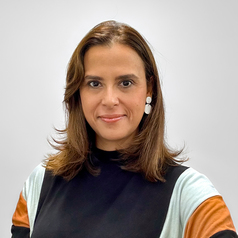
Mariana Campbell
Research Lecturer, Conservation, Charles Darwin University
Mariana Campbell is originally from Brazil, where she completed a Bachelor of Science and a Research Masters. She was awarded an Australian International Research Post-graduate Scholarship (IPRS) in 2009 to undertake a Ph.D. at The University of Queensland, studying the Ecology and Conservation of the Mary River turtle (Elusor macrurus). She now works at Charles Darwin University as a Research Lecturer, managing the research associated with two Commonwealth Funded Grants. In this role, she engages in laboratory and field work around animal movement but also assists with the administration of the North Australia Centre for Autonomous Systems (NACAS). Mariana also lectures two courses in GIS (Geographical Information Systems) for undergraduates and Masters students.
Mariana has worked in animal research and teaching at five universities throughout her career and has over 15 years of experience in animal husbandry. Most of this experience is with reptiles and fish, but she has also worked with amphibians, mammals, and birds. Mariana's primary interest is using animal movement data and other ecological and behavioural variables to aid conservation and management.
Less ![]()
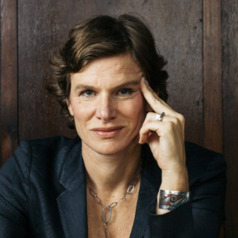
Mariana Mazzucato
Professor in the Economics of Innovation and Public Value and Founding Director of the UCL IIPP, UCL
Mariana Mazzucato is Professor in the Economics of Innovation and Public Value at University College London, where she is Founding Director of the UCL Institute for Innovation & Public Purpose (IIPP). Her previous posts include the RM Phillips Professorial Chair at the Science Policy Research Unit at Sussex University.
She is winner of international prizes including the Grande Ufficiale Ordine al Merito della Repubblica Italiana in 2021, Italy's highest civilian honour, the 2020 John von Neumann Award, the 2019 All European Academies Madame de Staël Prize for Cultural Values, and the 2018 Leontief Prize for Advancing the Frontiers of Economic Thought. Most recently, Pope Francis appointed her to the Pontifical Academy for Life for bringing ‘more humanity’ to the world.
As well as The Entrepreneurial State: debunking public vs. private sector myths (2013), she is the author of The Value of Everything: making and taking in the global economy (2018), Mission Economy: a moonshot guide to changing capitalism (2021) and The Big Con: How the Consulting Industry Weakens our Businesses, Infantilizes our Governments and Warps our Economies (2023).
She advises policy makers around the world on innovation-led inclusive and sustainable growth. Her roles have included for example Chair of the World Health Organization's Council on the Economics of Health for All, Co-Chair of the Global Commission on the Economics of Water, Co-Chair on the Council on Urban Initiatives, and a member of the South African President’s Economic Advisory Council. Previously, through her role as Special Advisor for the EC Commissioner for Research, Science and Innovation (2017-2019), she authored the high-impact report on Mission-Oriented Research and Innovation in the European Union, turning “missions” into a crucial new instrument in the European Commission’s Horizon innovation programme, and more recently, authored a report with the UN’s Economic Commission for Latin America and the Caribbean (ECLAC) on Transformational Change in Latin America and the Caribbean: A mission-oriented approach.
Less ![]()
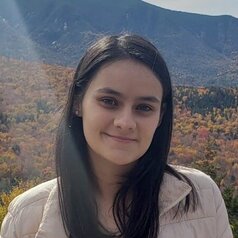
Mariana Noto Guillen
Ph.D. Candidate in Systems Biology, UMass Chan Medical School
I graduated from the University of Buenos Aires with a B.Sc. in Biological Sciences with an emphasis in Molecular Biology. In Dr. Adali Pecci’s lab, my undergraduate thesis focused on studying the role of the glucocorticoid and the liver X receptors in the modulation of inflammation. Currently, I am a graduate student in the Bioinformatics and Computational Biology program at UMass Medical School. I joined the Mitchell lab where I’m using a genomic approach to uncover the metabolic interactions in microbial communities. I am also working with Brittany to systematically understand the impact of host-targeted drugs on bacterial growth. When I’m not in the lab, I love to spend my time dancing or climbing.
Less ![]()
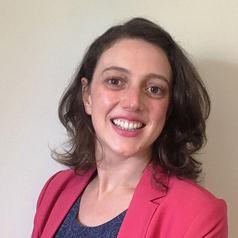
Mariane Bourcheix-Laporte
PhD Candidate, School of Communication, Simon Fraser University
Mariane Bourcheix-Laporte is a Bombardier Doctoral Scholar and PhD Candidate at Simon Fraser University’s School of Communication. Her research focuses on Canadian cultural policy and artist-run organizations. In 2019, she received the Canadian Communication Association’s Doctoral CRTC Prize for Excellence in Policy Research for the paper “Creative Canada: A Critical Look at a ‘New’ Cultural Policy Framework.” She is a member of the Cultural Policy, IP and Rights Ecosystems Working Group for Archive/Counter Archive, a multi-year research project based out of York University.
Mariane obtained an MFA in Interdisciplinary Arts from SFU’s School for the Contemporary Arts in 2012 and has exhibited artistic and curatorial projects across Canada. Her research and art criticism has been published in various edited books, art journals including esse art + opinions, C Magazine, and Inter art actuel. Most recently, her chapter “Digital Cultural Industrialism and the Arts: A Critical Look at Creative Canada and the Canada Council for the Arts’ Digital Strategy Fund” was included in Canadian Cultural Policy in Transition (2021).
Mariane has worked as the lead consultant on various sectoral and community research projects commissioned by national and provincial arts service organizations including ARCA, IMAA, and CARFAC. Mariane has served on the board of directors of the Pacific Association of Artist-Run Centres (2016-2018), VIVO Media Arts Centre (2014-2019), and Aphotic Theatre (2017-present).
Less ![]()

Marianna Fotaki
Marianna holds degrees in medicine, health economics, and a PhD in public policy from London School of Economics and Political Science. Before joining academia in 2003 she has worked as a medical doctor in Greece, China, and the UK, as a volunteer and manager for humanitarian organizations Médecins du Monde and Médecins sans Frontiers in Iraq and Albania, and as the EU senior resident adviser to governments in transition (in Russia, Georgia and Armenia). Marianna is at present a Senior Editor for Organization Studies, and co-directs pro bono an online think tank Centre for Health and the Public Interest a charity that aims to disseminate research informing the public and policy makers (http://chpi.org.uk).
Marianna is also a Network Fellow at the Edmond J Safra Center for Ethics, Harvard University in 2014-2015.
Less ![]()
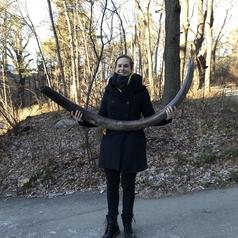
Marianne Dehasque
Postdoctoral Researcher, Department of Organismal Biology, Uppsala University
I am an evolutionary biologist using genomic data to understand how evolutionary and demographic processes shape an organism’s genome. I do this by using time-series data from ancient and historical samples. During my PhD, I used the woolly mammoth as a model species to study evolutionary processes in declining populations. At my current postdoc, I am studying the genomics of feralization by analysing genomes ancient and modern sheep and their wild/feral relatives.
Less ![]()
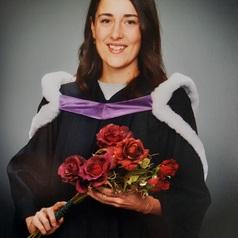
Marianne Granger
Auxiliaire de recherche en agriculture et systèmes alimentaires durables, Bishop's University
Provenant du milieu agricole biologique, je m'intéresse maintenant à trouver des stratégies afin de reconnecter l'humain à la nature. Favoriser l'émergence et l'implantation de systèmes alimentaires durables est selon moi une façon holistique de répondre à plusieurs enjeux, tels que la crise environnementale et la justice sociale, puisque l'alimentation est un des piliers de notre existence.
En septembre 2023, je rentrerai à la maîtrise en "Landscape and Wellbeing" à l'Université d'Édimbourg pour étudier l'impact que les paysages et les milieux naturels ont sur notre quotidien. J'ai donc l'ambition de revenir au Québec inspirée et prête à mettre la main à la pâte, ou la pelle, pour contribuer activement à ce changement de cap.
Je me trouve donc en grande période d'exploration.
Less ![]()
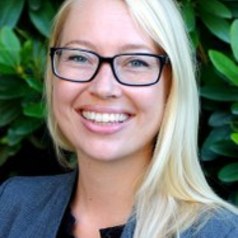
Marianne Hem Eriksen
Associate Professor of Archaeology, University of Leicester
I took up the post of Associate Professor of Archaeology in Leicester in early 2021 and I will until 2026 principally focus on the ERC Starting Grant Body-Politics: Death Personhood and Sexuality in the Iron and Viking Ages. Before taking up the post in Leicester I was Associate Professor of Archaeology at the Museum of Cultural History at the University of Oslo. From 2017-2019 a grant took me to the University of Cambridge where I was a Research Fellow at the McDonald Institute of Archaeology and at Clare Hall college. Before this I was substitute Associate Professor (2016) and Teaching Fellow (2015) at the Institute for Archaeology in Oslo. My PhD (2012-2015) was also written there, with some time spent at UCL.
My research ranges topics from infancy, power and the powerless, to movement, dreams and the self in the past. It centres around three main axes of late prehistoric and early medieval Scandinavia: the entwinement between architecture and inhabitants; the complex relationships between the living and the dead; and politics of the body. Often, I have worked with the links between architectural spaces and human bodies, by considering how prehistoric houses are built by bodies, produce certain bodily experiences, can be conceptualised as bodies themselves - and how dead bodies, parts and whole, are linked to domestic space. I have a strong interest in the lived experiences of inequality and gender.
I was honoured to receive the 2022 Philip Leverhulme Prize in Archaeology.
Less ![]()
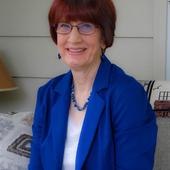
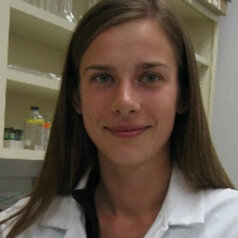
Marianne Piochon
Assistante de recherche, MSc, Université du Québec à Chicoutimi (UQAC)
Marianne Piochon a obtenu sa Maîtrise en Ressources Renouvelables à l'Université du Québec à Chicoutimi en 2008. Après ses études, elle a travaillé dans divers laboratoires en France (Yves Rocher, CHU Poitiers/INSERM), Royaume-Uni (Abbott) et Canada (INRS) afin de diversifier son expertise dans le domaine des biosciences. Depuis 2021, elle est revenue à l'UQAC pour travailler avec le Professeur André Pichette en tant qu'assistante de recherche au sein du Centre de Transformation et de Valorisation des Bio-produits (CTVB). Elle participe à divers projets de recherche tels que la découverte de nouvelles molécules bioactives issues des plantes de la forêt boréale, la valorisation des résidus de l'industrie forestière, le développement d’approches de production de molécules à haute valeur ajoutée, etc.
Champ d'expertise:
Chimie des produits naturels, Chimie analytique, Synthèse organique
Less ![]()
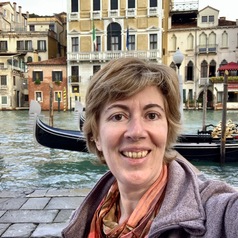
Marica S. Tacconi
Distinguished Professor of Musicology and Art History, Penn State
Marica S. Tacconi is a Distinguished Professor of musicology and art history, and associate director of the School of Music. She joined the Penn State faculty in 1998 and teaches undergraduate and graduate music history. A native of central Italy, she is a graduate of the Interlochen Arts Academy and holds a B.A. from Williams College and a Ph.D. in musicology from Yale University.
Tacconi’s interdisciplinary research interests focus on the music, art, and culture of late medieval and early modern Italy. Her scholarly work has been presented at conferences in the United States, Italy, Belgium, Denmark, and England, and has appeared in numerous journals, collections of essays, and exhibition catalogues. She is the author of "I Libri del Duomo di Firenze" (with Lorenzo Fabbri; Centro Di, 1997) and of "Cathedral and Civic Ritual in Late Medieval and Renaissance Florence: The Service Books of Santa Maria del Fiore" (Cambridge University Press, 2005).
Tacconi’s research has been supported by several institutions and grant agencies, including the Andrew W. Mellon Foundation, the Robert Lehman Foundation, and the American Musicological Society. In 2002-03, she was a post-doctoral research Fellow at Villa I Tatti, the Harvard University Center for Italian Renaissance Studies in Florence, Italy. She returned to Villa I Tatti in 2011 as the Robert Lehman Visiting Research Professor in Residence, where she worked on the scholarly project “The Rhetoric of Echo in the Music of Early Modern Europe, ca. 1575–1660.”
From 2005 to 2010, Tacconi served as director of the Penn State Institute for the Arts and Humanities. In 2008–09, she was selected to participate as a Fellow in the Committee on Institutional Cooperation (CIC) Academic Leadership Program. She was an elected member of the Board of Directors of the Pennsylvania Humanities Council (vice chair; chair, Governance Committee; 2009-15) and has served as the School of Music faculty liaison for the Penn State Center for the Performing Arts’ Classical Music Project.
Tacconi’s dissertation ("Liturgy and Chant at the Cathedral of Florence: A Survey of the Pre-Tridentine Sources, Tenth-Sixteenth Centuries"; Yale University, 1999) won a 1997–98 AMS 50 Fellowship Award from the American Musicological Society. She is also the recipient of the 2001 Faculty Award for Outstanding Teaching from the College of Arts and Architecture, the 2013 Achieving Women Award (faculty category) from the Penn State Commission for Women, the 2016 President’s Award for Excellence in Academic Integration, and the 2020 Faculty Scholar Medal for Outstanding Achievement (arts & humanities category).
Less ![]()

Marie Ballarini
Professeur assistant, Université Paris Dauphine – PSL
Marie Ballarini est Enseignante-Chercheuse au sein de l'Université Paris Dauphine – PSL, où elle est membre du laboratoire Dauphine Recherche en Management (DRM-MOST). Ses travaux se concentrent sur le financement et la communication des organisations culturelles, notamment à travers les nouvelles technologies et les réseaux numériques. Depuis 2022, elle occupe plusieurs responsabilités, dont la gestion des événements scientifiques pour l'association Mêtis, la communication pour l'Association for Cultural Economics International (ACEI) et la communication interne de l'Association Française de Marketing (AFM). Elle a mené des recherches post-doctorales à la Bibliothèque nationale de France dans le cadre du Labex ICCA relatives à l'impact des créateurs de contenu culturels sur les institutions et les publics du patrimoine. Sa thèse, soutenue en 2019 à l'Université Sorbonne Nouvelle, portait sur le financement participatif des musées et du patrimoine. Marie Ballarini est l'auteure de plusieurs publications académiques et professionnelles, explorant des thématiques telles que la médiation patrimoniale et la standardisation technique des œuvres en réalité virtuelle.
Less ![]()
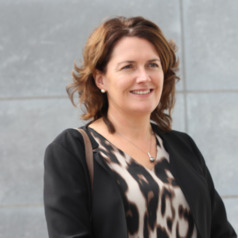
Marie Coggins
Senior lecturer in Exposure Science, University of Galway
I graduated from NUI Galway in 2000 with a PhD in Atmospheric Physics. From 2000 – 2003 I have worked in industry as an Industrial Hygiene Professional. Since 2003, I have worked as a Lecturer in Exposure Science, Occupational Hygiene and Chemical Safety and Risk Management. In 2015, I was awarded Chartered membership (CMFOH) of the Faculty of the Occupational Hygiene (British Occupational Hygiene Society). I was the programme Director for the multidisciplinary MSc / HDip Occupational and Environmental Health & Safety programmes from 2009 – 2019. I am currently programme Director for the BSc Environmental Health and Safety programme. I also lead the Exposure Science research group and have published over 70 peer-reviewed journals, reports and conference contributions in the field of Exposure Science (Occupational & Environmental Exposure). In January 2021, I was invited to serve on a National Expert Group on the Role of Ventilation in Reducing Transmission of COVID-19. Initially established as a subgroup of the National Public Health Emergency Team (NPHET), this group now works with the Senior Official’s Group to further inform sectoral guidance and public information regarding ventilation
Less ![]()
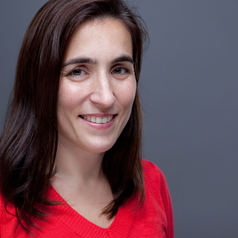
Marie Connolly
Professor of Economics, Université du Québec à Montréal (UQAM)
Marie Connolly (Ph.D. 2007, Princeton University) has been a professor at the Department of Economics of UQAM’s School of Management (ESG UQAM) since 2009. Her research is primarily empirical and touches upon various topics in labor economics, such as intergenerational income transmission and socioeconomic mobility, the formation of human capital, the gender wage gap, women’s labor force participation and the evaluation of public policy. Her work as been published in the Journal of Labor Economics, the Journal of Economic Behavior and Organization and the Canadian Journal of Economics, among others. She is currently Data Editor for the Canadian Journal of Economics and the Vice-Dean for Research at ESG UQAM.
Less ![]()
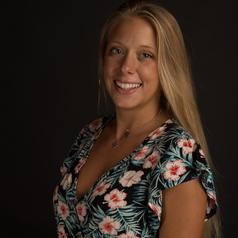
Marie Durrieu
Doctorante associée à l'Institut de Recherche Stratégique de l'École Militaire en science politique et relations internationales (CMH EA 4232-UCA), Sciences Po
Livre : "Du conflit israélo-palestinien au nucléaire iranien : l'humiliation la variable oubliée des négociations", L'Harmattan, 2021
Diplômée de l’École Doctorale de Sciences Po Paris.
Doctorante associée à l'Institut de Recherche Stratégique de l'École Militaire
Directeurs de thèse : Frédéric Charillon, Thomas Lindemann
Enseignante Science Politique et Relations Internationales à Sciences Po Paris et à Université de Clermont
Sujets d’étude : les émotions en politique, la guerre et les mutations de la conflictualité, Moyen et Proche Orient, analyse politique étrangère
Less ![]()
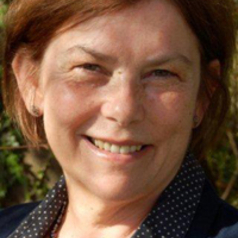
Marie Gillespie
Professor of Sociology, The Open University
Marie is co-director of Centre for Research on Socio-Cultural Change. She researches diaspora and national media cultures comparatively, historically and ethnographically. Her interests cluster around South Asian and Middle Eastern diasporas, cultural transnationalism, and changing configurations of audiences and publics in relation to question of citizenship. Recent collaborative include: a large-scale study of the BBC World Service as a multi-diasporic institution; an exploration of the new politics of security via a collaborative ethnography of transnational news cultures in multi-ethnic British households in eight UK cities; a national survey with the BBC on the changing face of British humour, ethnic jokes and comedy. Marie was awarded an AHRC Public Policy Fellowship in 2011 to develop research on the interface between international broadcasting and social media, specifically in relation to the BBC Arabic Services.
Less ![]()
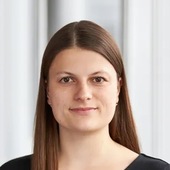
Marie Hornberger
Research Associate at the School of Social Sciences and Technology, Technical University of Munich
Less ![]()
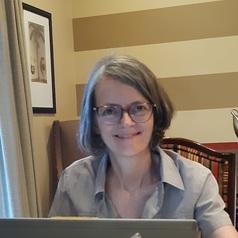
Marie Huchzermeyer
Professor, School of Architecture and Planning, University of the Witwatersrand
Prof Marie Huchzermeyer is a professor in the School of Architecture & Planning at Wits University and the current Director of the Centre for Urbanism and Built Environment Studies (CUBES) in the School. Her research has spanned Brazil, South Africa, Kenya and other African countries. She has explored questions of policy and rights as they relate to informal settlements, private rental housing or tenements and housing more widely. Her current research is on the right to the city and the right to development and their implications for policy, planning and institutional arrangements in a context of inequality and the prevalence of what has come to be known as informality.
Less ![]()
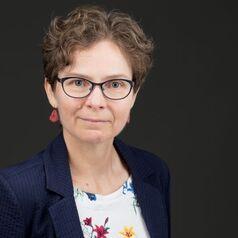
Marie Larocque
Professeure au département des sciences de la Terre et de l'atmosphère, Université du Québec à Montréal (UQAM)
- Centres de recherche Geotop et GRIL
- Chaire de recherche Eau et conservation du territoire (chaire-eau.uqam.ca)
Less ![]()
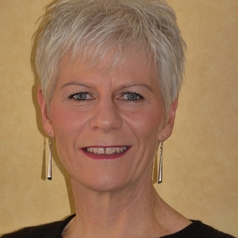
Marie McEntee
Senior Lecturer, School of Environment, University of Auckland, Waipapa Taumata Rau
Marie McEntee is a social scientist in the School of Environment at the University of Auckland with research interests in science / society interactions particularly relating to complex socio-environmental issues. She engages in transdisciplinary research focusing on public engagement in science, science communication, and science innovation. She has a particular interest in biosecurity and in particular forest biosecurity and invasive predator management.
Less ![]()
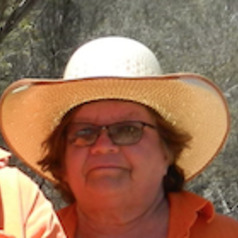

Marie T. Reilly
Professor of Law, Penn State
Marie T. Reilly is a professor at Penn State Law and an expert in bankruptcy and commercial law. She served as Associate Dean for Academic Affairs from 2008 to 2015. Prior to joining the Penn State faculty, she was a professor at the University of South Carolina School of Law. Before she became a law teacher, she practiced law with Williams & Connolly in Washington, D.C., and Schiff Hardin in Chicago, Illinois. She teaches contracts, bankruptcy, and commercial law subjects and co-teaches a bootcamp-style course on business fundamentals for law students. Her scholarship considers legal responses to insolvency problems in light of economic, political, and social influences over time. She is a co-author of a law school casebook on secured transactions. Her articles address a wide variety of issues including Catholic organization bankruptcies, fraudulent transfer law, successor liability, marital agency, and tax lien foreclosures. Professor Reilly holds a B.A. (economics) and J.D. from the University of Illinois. She is an elected member of the American Law Institute and a member of the bars of Illinois, District of Columbia, and South Carolina.
Less ![]()
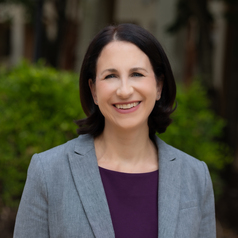
Marie-Amelie George
Associate Professor of Law, Wake Forest University
I am an expert on gay and lesbian legal history and contemporary LGBTQ+ rights. My research has appeared in leading peer-reviewed and law review journals, and I am a three-time recipient of the Dukeminier Award, which recognizes the country's most influential sexual orientation and gender identity scholarship.
I currently teach at Wake Forest University School of Law. Prior to joining the Wake faculty, I was the Berger-Howe Fellow in Legal History at Harvard Law School. I also served as an Associate in Law at Columbia Law School, where I taught the Sexuality and Gender Law Clinic. I received my Ph.D in history from Yale University, and my J.D. from Columbia Law School, where I was Editor-in-Chief of the Columbia Journal of Gender and Law and a Kent Scholar. I also hold a M.St. in Women's Studies from the University of Oxford, where I was awarded a distinction on my thesis.
Less ![]()
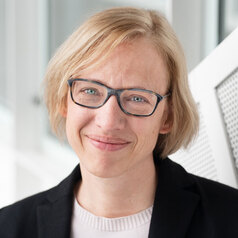
Marie-Ann Betschinger
Associate Professor of Strategy, HEC Montréal
Marie‑Ann Betschinger is Associate Professor of Strategy at HEC Montreal in Canada. Her research focuses on corporate and international strategy. She is particularly interested in different forms of firm internationalization, mergers & acquisitions, corporate governance, and the political and social context within which firms act.
Less ![]()
- Market Data





















